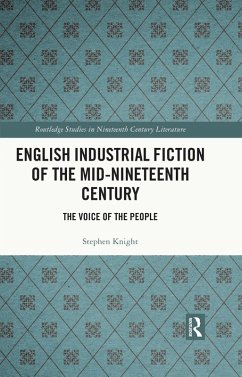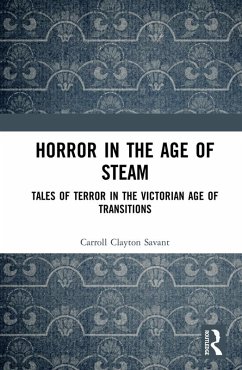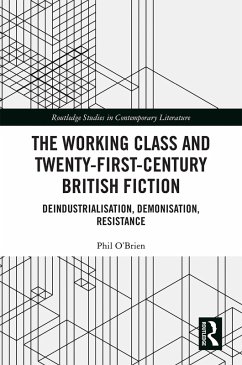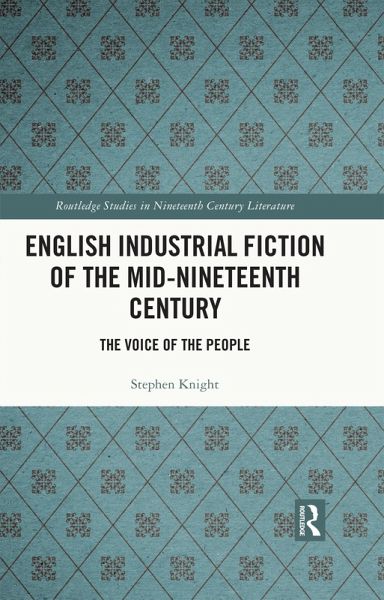
English Industrial Fiction of the Mid-Nineteenth Century (eBook, PDF)
The Voice of the People
Versandkostenfrei!
Sofort per Download lieferbar
42,95 €
inkl. MwSt.
Weitere Ausgaben:

PAYBACK Punkte
21 °P sammeln!
English Industrial Fiction of the Mid-Nineteenth Century discusses the valuable fiction written in mid-nineteenth-century Britain which represents the situations of the new breed of industrial workers, both the mostly male factory workers who operated in the oppressive mills of the midlands and north and, in other stories, the oppressed seamstresses who worked mostly in London in very poor and low-paid conditions. Beginning with a general introduction to workers' fiction at the start of the period, this volume charts the rise of an identifiable genre of industrial fiction and the development o...
English Industrial Fiction of the Mid-Nineteenth Century discusses the valuable fiction written in mid-nineteenth-century Britain which represents the situations of the new breed of industrial workers, both the mostly male factory workers who operated in the oppressive mills of the midlands and north and, in other stories, the oppressed seamstresses who worked mostly in London in very poor and low-paid conditions. Beginning with a general introduction to workers' fiction at the start of the period, this volume charts the rise of an identifiable genre of industrial fiction and the development of a substantial mode of seamstress fiction through the 1840s, including an analysis of novels by Benjamin Disraeli, Charles Kingsley, Elizabeth Gaskell and Charles Dickens, and more briefly Charlotte Bronte, Geraldine Jewsbury and George Eliot. This volume is essential reading for students and scholars of industrial fiction and nineteenth-century Britain, or those with an interest in the relationship between literature, society and politics.
Dieser Download kann aus rechtlichen Gründen nur mit Rechnungsadresse in A, B, BG, CY, CZ, D, DK, EW, E, FIN, F, GR, HR, H, IRL, I, LT, L, LR, M, NL, PL, P, R, S, SLO, SK ausgeliefert werden.




